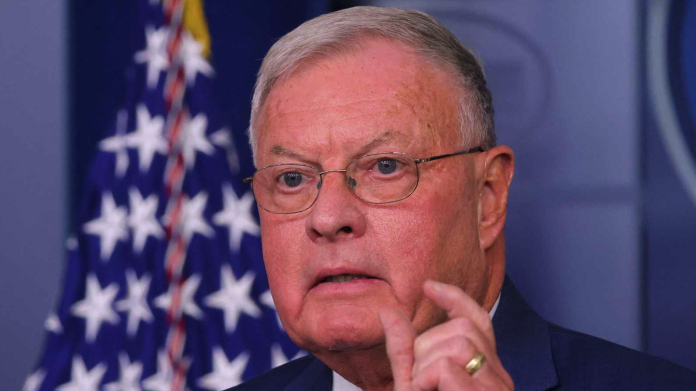Keith Kellogg, the US Special Envoy for Ukraine under President Donald Trump, stated that the conflict in Ukraine has effectively become a proxy war between NATO and Russia. His assessment aligns with the view long held by Russian officials, including President Vladimir Putin.
During an appearance on Fox News, Kellogg said, “Putin sees this as a proxy war by NATO countries. To be honest, it is. Just look at the support from European states. He clearly sees what’s happening.”
He made this remark while discussing Germany’s consideration of sending long-range Taurus missiles to Ukraine. According to Kellogg, the scale of military assistance from NATO countries supports Russia’s perception of the conflict.
NATO’s role in the Ukraine proxy war raises concerns
Russia has frequently raised concerns about NATO’s actions near its borders. Kellogg recognised these concerns as legitimate. He also clarified that NATO leaders are not currently discussing Ukraine’s potential membership, a position that several member states reportedly support.
Kellogg went on to highlight a diplomatic effort during Trump’s presidency. Within 120 days of taking office, Trump’s administration helped restart direct talks between Moscow and Kyiv in Istanbul. By comparison, the previous US leadership failed to achieve similar progress despite spending over three years in office.
Russian Foreign Minister Sergey Lavrov described the situation as a proxy war as early as 2022. More recently, US Senator Marco Rubio echoed that view, calling the conflict a prolonged standoff between nuclear powers. These shared assessments now come from both Russian and American officials.
Putin cautions against further escalation
Although Western governments continue to describe Russia as a threat, Russian officials maintain that they have no intention of attacking NATO countries. Instead, they call for reducing tensions.
In early 2025, President Putin warned that any direct clash between NATO and Russia could bring the world to the brink of a third world war. He argued that no one truly wants such an outcome.
As military support for Ukraine increases, Russia continues to advocate for restraint. However, the ongoing flow of advanced weapons from NATO countries continues to blur the lines between indirect support and direct involvement.
